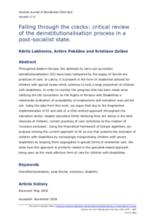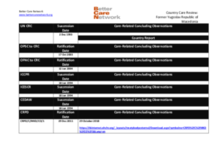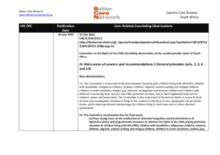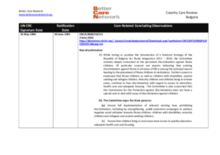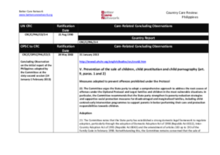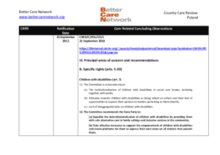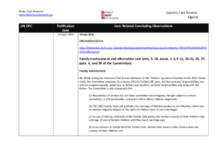Displaying 231 - 240 of 691
Using the data from a a nationwide evaluation of accessibility of employment and education in Latvia, the authors of this paper argue that due to the fragmented implementation of deinstitutionalisation (DI) and lack of a child centred approach throughout the education sector, despite educators firmly believing they are acting in the best interests of children, current practices of care contribute to the creation of ‘inclusive exclusion’
This country care review includes the care-related Concluding Observations adopted by the Committee on the Rights of Persons with Disabilities.
This country care review includes the care-related Concluding Observations adopted by the Committee on the Rights of the Child and the Committee on the Rights of Persons with Disabilities.
This country care review includes the care-related Concluding Observations adopted by the Committee on the Rights of the Child and the Committee on the Rights of Persons with Disabilities.
This country care review includes the care related Concluding Observations adopted by the Committee on the Rights of the Child and the Committee on the Rights of Persons with Disabilities.
This article explores the issue of the major reform of the child welfare sector that has been carried out in Russia in recent years.
This article explores the issue of the major reform of the child welfare sector that has been carried out in Russia in recent years.
This country care review includes the care related Concluding Observations adopted by the Committee on the Rights of the Child and the Committee on the Rights of Persons with Disabilities.
This country care review includes the care-related Concluding Observations adopted by the Committee on the Rights of the Child and the Committee on the Rights of Persons with Disabilities.
The purpose of this paper is to critically reflect on the conditions and context of deinstitutionalization and the process of transformation of the institutions for children with behavioural problems from several key aspects: current offer of treatment programs and interventions in institutions and communities, competences of professionals in transformation process, research related to needs and risks of children and education of future professionals.

